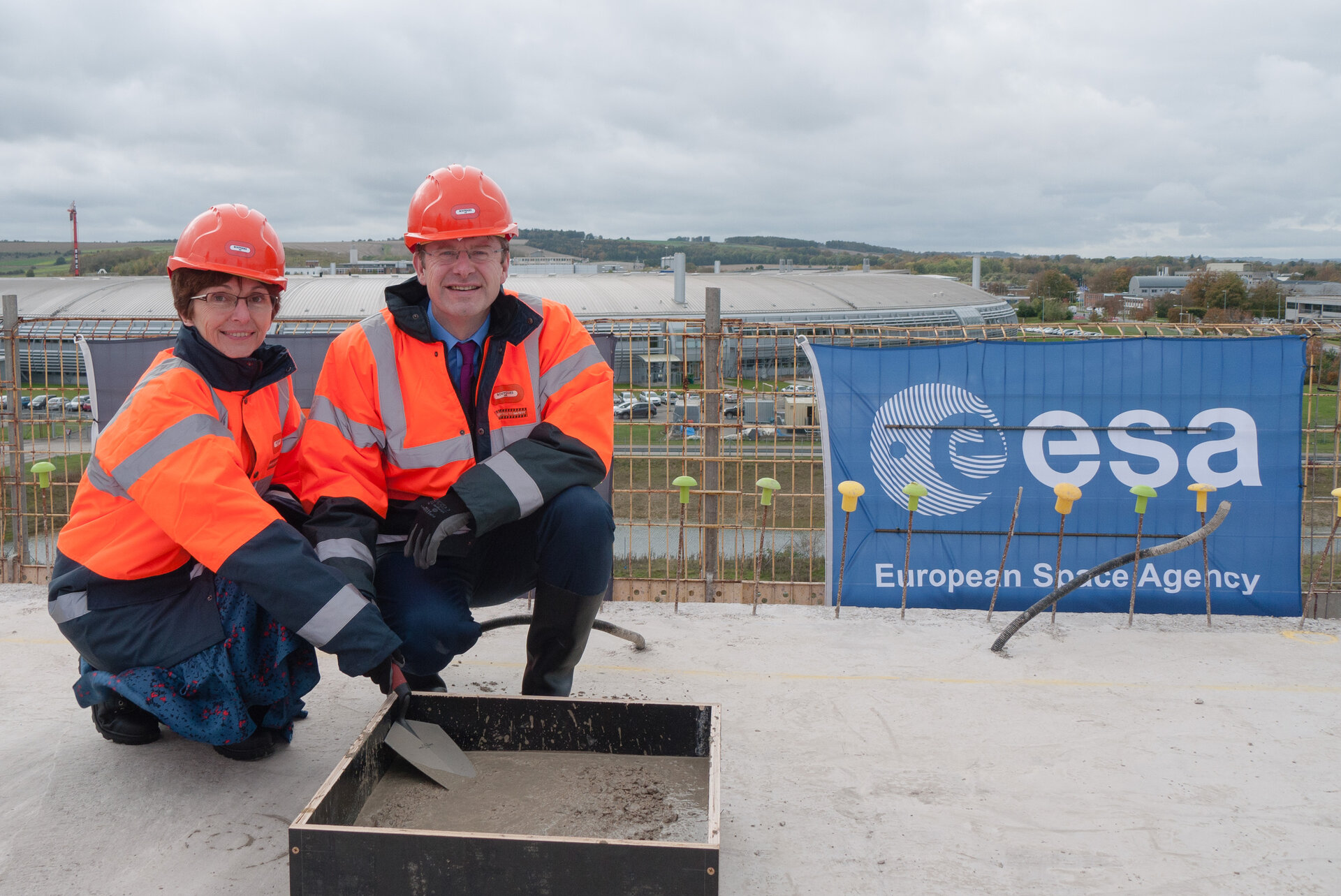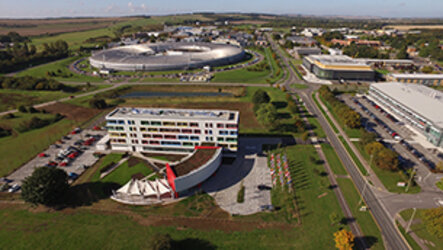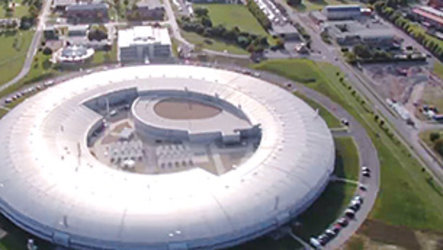Minister completes ECSAT’s highest point
ESA’s newest centre hit an important milestone last week in the UK. On 23 October, UK Minister for Universities, Science and Cities Greg Clark joined Magali Vaissiere, Head of ESA’s UK facility, in completing the topmost concrete slab of its new building on the Harwell Oxford campus.
The European Centre for Space Applications and Telecommunications, ECSAT, is part of the UK’s investment in the space sector, which has been increasing at an average of 7.2% over the last two years.
Opened in 2009, the centre is the most recent addition to the Agency’s operational sites across Europe.
Further agreements reached between the UK and ESA in November 2013 have ensured its continued development. It is home to ESA teams in telecom and integrated applications, science and exploration, and technology and quality management support, as well as the Climate Office.
Magali Vaissiere invited the Minister to the construction site of ECSAT’s new ‘Roy Gibson’ building on the campus for an exclusive look at the progress. The building is on track for completion in mid-2015, and the ‘topping out’ ceremony was held to mark the highest point of the building being reached.
Mr Clark and Mrs Vaissiere completed the ceremony together by laying the final trowel of cement in the presence of the UK Space Agency’s Chief Executive, David Parker.
ECSAT personnel are currently working from rented offices on the Harwell campus. The centre is growing quickly, with around 100 ESA employees expected to be based there by next year.
The recent publication The Size & Health of the UK Space Industry in October 2014 revealed that the sector continues to soar. It is worth £11.3 billion to the UK economy, employing over 34 000 people and supporting a further 65 000 jobs in other sectors.
As part of its strategy to boost the growth of the UK space economy, the government has set out ambitious plans to achieve a £40 billion UK space industry and secure 10% of the global space market by 2030.







